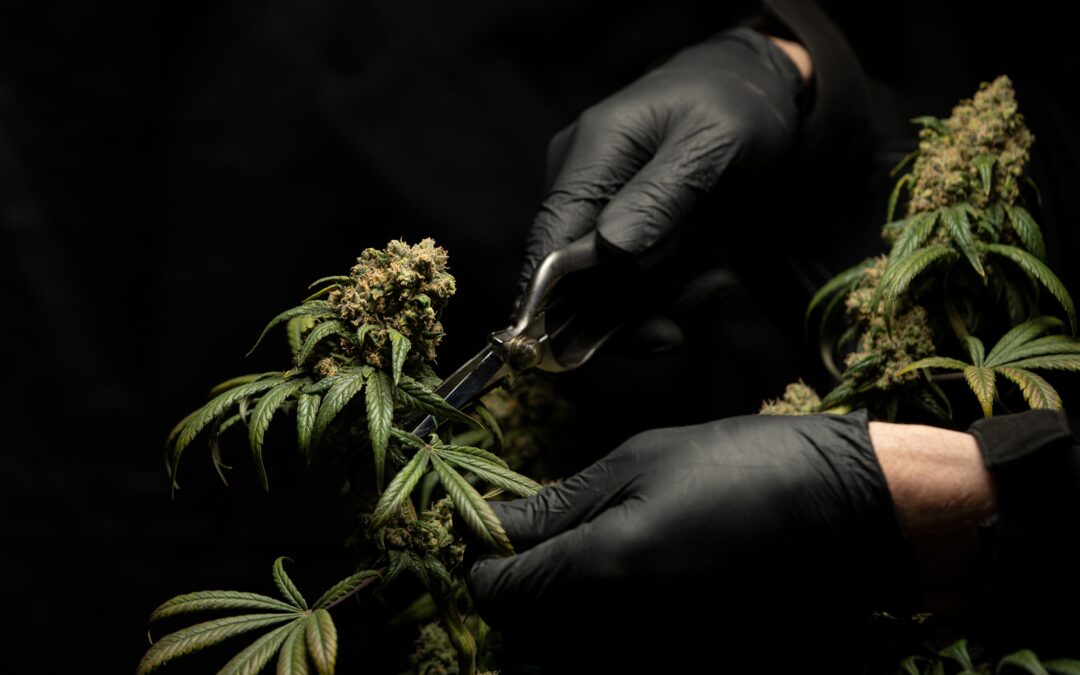The supply chain for Cannabis distributors isn’t much different from other agricultural products – cultivators grow cannabis, which is then delivered to distributors who are either stationary or provide delivery services for customers. What differentiates cannabis from, say, wheat or tobacco, is a quasi-legal status that causes headaches up and down the chain and riddles it with security concerns.
Though many states have legalized the growth, distribution and sale of the product, it remains illegal federally. This questionable legal status drives away major banks from both investment and allowing businesses in the industry from opening accounts, which means that growers and distributors are often forced to only accept cash as payment for their products.
In addition to the federal view on Cannabis, many states have still not legalized the use and distribution of the plant, leading to large and thriving black markets where it can be sold at a premium. This creates a major incentive for criminals in states where the product is legal to burglarize legitimate distributors for the cash crop and sell it in more profitable areas. The fact that these distributors are law abiding citizens rather than dangerous rival criminal organizations also gives the impression that they are easy pickings.
In the Cannabis industry, there are three primary levels in the supply chain – cultivation, distribution (either B2B or B2C), and storefront – and each comes with both unique and overlapping security concerns. In order to protect your business, your employees, and your customers, you must have a security plan that adequately prepares for the threats your part of the chain is likely to see.
- Growing Operations
Though the actual cultivation of Cannabis is probably the most encapsulated of the three levels, they still have plenty of security concerns to worry about. Cultivators are responsible for the growth and preparation of the Cannabis meant for consumption and can be either located within the bounds of a metro area (typically identified as Green Zones) and grow their plants indoors or be farther away in more rural areas, growing the product in fields like other crops.
For many, the primary threat to the business comes from within. Improperly screened employees may be either working with criminal organizations or are just opportunistic thieves who take advantage of their position to swipe a bit of product here and there.
Internal threats are often overlooked when determining what threats need to be targeted by a security system. The same incentives that exist for more violent criminals outside the organizations exist for employees, and it’s been estimated that up to 90% of losses due to theft in the industry come from employees.
Effective security plans for growers need to be equally focused on both outside and inside threats.
- Delivery
Vehicle burglaries are unfortunately on the rise in many metro areas around the country. San Francisco has suffered a 753% increase in vehicle burglaries over the last year, many of which have occurred while the operator was still in the car and either stopped to park or just sitting in traffic.
Transportation for Cannabis companies is especially dangerous, as the vehicle is often packed full of valuable goods and cash received from deliveries. Many companies are turning to armored cars manned by fully armed security guards for transportation, but this kind of expense is unrealistic for many operators. The insurance cost for that vendor is very expensive, and if they don’t provide a COI (Certificate of Insurance) then start to ask questions.
Though internal threats are still a concern for cannabis logistical companies, they are especially vulnerable to outside criminal threats. Proper security plans for this arm of the industry need to focus on both physical protection and training for the employees that will be transporting the goods.
Employee training is absolutely essential, especially if they don’t have the protection of a vehicle, GPS, live video, or two way communication abilities. Even if they do, they are vulnerable when getting out of the car either for pickup or during delivery transactions and when stopping at traffic lights or in heavy traffic. Constant vigilance must be maintained at all times, and training for potentially dangerous situations such as robberies can help prevent injury or death.

- Dispensary Storefronts
Dispensaries are the most visible and accessible points on the cannabis supply chain and therefore have to deal with both inside and outside threats in tandem. Each store is filled with tens of thousands of dollars in both product and cash in a fixed location.
Due to the complex nature of the legality of the industry, both product and cash can be hard to track. This makes it easier for both customers and employees to swipe a little here and there without getting noticed. The compliance implications that can occur from such an incident can be costly on multiple fronts.
This factor also attracts criminals looking for an easy pay day. Though many are wary of simply robbing a store at gunpoint, they will often stake out a dispensary to try to find lapses in security that can be exploited out of sight from the authorities. In addition to the pack mentality which is ever increasing, retail storefront dispensaries are at risk of multiple external threats.
This creates a highly complex security situation for dispensary owners, who may have gotten more than they bargained for when starting their business. Internal security measures for keeping tabs on employees must work in tandem with those that are designed to deter and repulse outside criminal elements.
Regardless of where your business lies on the supply chain, business owners working in the cannabis industry face an uphill battle when it comes to locking down their operations. For many who got into the industry due to a passion or love for the process, creating an effective security plan and following through with it is potentially out of their wheelhouse.
What many don’t realize is these lapses in security open them up to a multitude of threats outside of just theft. Poor security is a major legal hazard – injuries that occur within your premises or to employees on the job can be fully prosecuted in civil suits, and a lackluster security system or plan all but ensures that those suites will end up poorly for you.
For cannabis business owners, it’s heavily recommended that you contract out preparing your security plan to companies like Cannabis Compliance Security Solutions who specialize in the industry. CCSS not only provides you with comprehensive security systems that are fully compliant with local ordinances, they also come with decades of undercover law enforcement experience, giving you unique insights into the minds of career criminals most likely to target businesses like yours.


Recent Comments